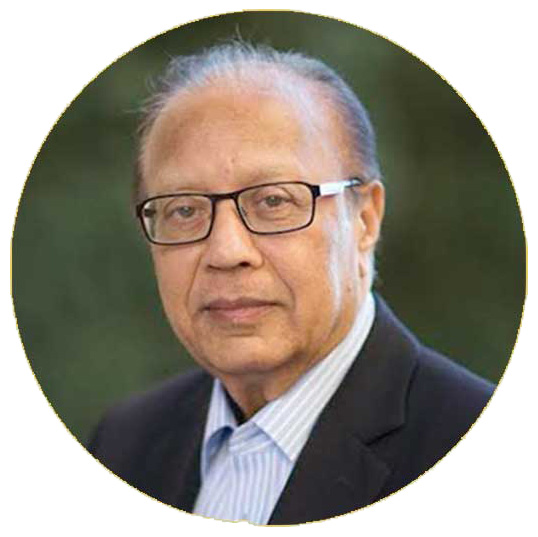


Committed to Sustainable Cities and Human Settlements for All

In Special Consultative Status with ECOSOC

OPENING ADDRESS BY AMBASSADOR ANWARUL K. CHOWDHURY, CHAIRMAN,
GLOBAL FORUM ON HUMAN SETTLEMENTS (GFHS),
FORMER UNDER-SECRETARY-GENERAL AND HIGH REPRESENTATIVE OF
THE UNITED NATIONS AT THE INAUGURAL SESSION OF
THE NINETEENTH GLOBAL FORUM ON HUMAN SETTLEMENTS (GFHS XIX)
AT UN HEADQUARTERS IN NEW YORK ON 24 OCTOBER 2024
A warm greeting to all of you on the occasion of the 79th birth anniversary of the United Nations.
In my capacity as the Chairman of the Global Forum on Human Settlements (GFHS), I extend a very warm welcome to all the participants who have joined us from various part of the globe at the Nineteenth Global Forum on Human Settlements in New York.
I mention with honor and pride that this is the fourth time that the annual gatherings of the Global Forum is being held at the United Nations headquarters in New York. Previous three were held in the years 2011, 2015 and 2017.
As one of the most important annual global meetings on the urban agenda, sustainable cities and human settlements, today’s Forum will focus on the theme, “Invigorate Innovation and Local Leadership for a Sustainable Urban Future”.
I thank the Forum Board members, in particular our distinguished Vice-Chairman Mr. Tajeldin Hamad, and the Forum Secretariat team for their commitment to the mission of the organization. My appreciation and special thanks go to our dynamic Secretary-General Lyu Haifeng for his hard work and for elevating the profile of GFHS, particularly over more than a decade and half during which I had the honor and privilege of being its Chairman.
In my brief opening remarks this morning, I would attempt to bring to your attention a broader perspective of the human settlements agenda in a global setting.
Beginning in 2008, for the first time, half of humanity is now living in towns and cities. But this dramatic transition is far from over. We have seen in reality the beginning of a new urban era.
It is projected that global urbanization levels will rise dramatically in the coming decades to reach 70 percent by 2050. We thus live at a time of rapid, unprecedented, irreversible urbanization.
“New Urban Agenda” adopted at the UN-Habitat III in Quito, Ecuador in 2016, coming on the heels of the adoption of the SDGs, seeks to create a mutually reinforcing relationship between urbanization and development. The idea is that these two concepts will become parallel vehicles for sustainable development.
It has been rightly said that “our struggle for global sustainability will be won or lost in cities. The challenges of rapid urbanization figure prominently in the 2030 Agenda for Sustainable Development in Goal 11 with a commitment to ‘make cities and human settlements inclusive, safe, resilient and sustainable’.”
Cities have the potential to shape the future of humankind and to win the battle for sustainable development. Cities are at the forefront of the global battle against climate change. In the last two decades, cities and urban centres have become the dominant habitats for humankind and the engine-rooms of human development as a whole.
Urbanization offers unprecedented opportunities for increasing living standards, life expectancy and environmental sustainability. At the same time, urban poverty is a severe, pervasive – and largely unacknowledged – feature of modern life.
Significantly, a gendered perspective of urban poverty highlights fundamental issues of equality and social justice by showing women’s unequal position in the urban labour market and their greater exposure to violence.
If cities are hubs of dynamism, change and opportunity, they are also places of exploitation, disease and unemployment. Crime, drug abuse and pollution have increased in growing numbers of cities. New tensions are emerging between migrants and established residents, adding to already sharp divisions along class, racial and ethnic lines.
Governments must turn their attention to the needs of vulnerable populations as a matter of urgency as part of their development of effective and comprehensive responses to homelessness. The state of sheer homelessness in the world today along with the immense crisis faced by millions living in inadequate and insecure housing and living conditions, calls for a combination of a humanitarian and a human rights approach.
As urbanization expands, more cities will find themselves managing problems and opportunities that used to be the exclusive domain of national governments. And as more cities come to have populations and economies larger than those of many countries, cities will increasingly become the main players in the global economy.
Let me conclude by underscoring that sustainable urban development is one of the most pressing challenges facing the human community in the 21st century. As more and more people make cities their home, cities will be the arenas in which some of the world’s biggest social, economic, environmental and political challenges will be faced and need to be addressed collectively.
As such, the leadership role of mayors and city governments is of fundamental importance. Here I have the pleasure of informing you about the launch in July 2021 of a new vision of the Mayors for Peace, a global organization with a membership of more than 8000 cities in 160 countries. Titled “Vision for Peaceful Transformation to a Sustainable World”, it sets forth a new third objective of “promoting the culture of peace,” in addition to the ongoing two objectives, “realizing a world without nuclear weapons,” and “realizing safe and resilient cities.”
It is significant that GFHS has, since its establishment, been focusing on the challenges I have outlined at each of its annual conferences. This nineteenth Global Forum in the series is again another timely, relevant and appropriate initiative that is aimed at making the international community alert and proactive to the issues of urbanization in a holistic manner.
Copyright © Global Forum on Human Settlements (GFHS)
